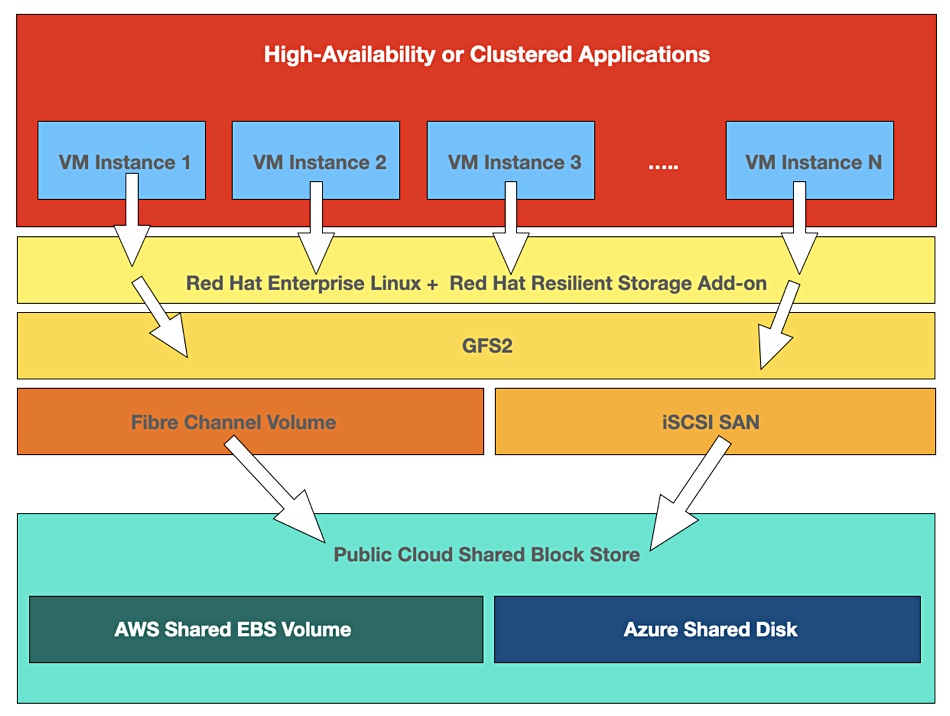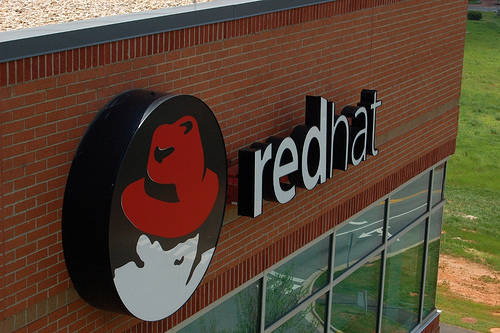Red Hat Linux running in the AWS and Azure public clouds now supports high-availability and clustered applications with its Resilient Storage Add-On (RSAO) software. This means apps like SAS, TIBCO MQ, IBM Websphere MQ, and Red Hat AMQ can all run on Red Hat Linux in AWS and Azure for the first time.
Announcing the update in a company blog post, Red Hat Enterprise Linux product manager Bob Handlin wrote: “This moment provides new opportunities to safely run clustered applications on cloud servers that, until recently, would have needed to run in your data centre. This is a big change.”
No cloud block sharing – until now
AWS and Azure did not support shared block storage devices in their clouds until recently. One and only one virtual machine instance, such as EC2 in AWS, could access an Elastic Block Storage (EBS) device at a time. That meant high-availability applications, which guard against server (node) failure by failing over to a second node which can access the same storage device, were not supported.
Typically, enterprise high-availability applications such as IBM WebSphere MQ have servers accessing a SAN to provide the shared storage. These applications could not be moved to the public cloud without having shared block storage there.
Azure announced shared block storage with an Azure shared disks feature in July 2020. And AWS announced support for clustered applications using shared (multi-attach) EBS volumes in January this year. The company said customers could now lift-and-shift their existing on-premises SAN architecture to AWS and Azure without refactoring cluster-aware file systems such as RSAO or Oracle Cluster File System (OCFS2).

RSAO
Red Hat’s Resilient Storage Add-On lets virtual machines access the same storage device from each server in a group through Global File System 2 (GFS2). This has no single point of failure and supports a shared namespace and full cluster coherency which enables concurrent access, and cluster-wide locking to arbitrate storage access. RSAO also features a POSIX-compliant file system across 16 nodes, and Clustered Samba or Common Internet File System for Windows environments.
AWS and Azure ‘s shared block storage developments have enabled Red Hat to port RSAO software to their environments. RSAO uses the GFS2 clustered filesystem and it passes Fibre Channel LUN or iSCSI SAN data IO requests to either an AWS shared EBS volume or Azure shared disk as appropriate.
Handlin said Red Hat will test RSAO on the Alibaba Cloud “and likely other cloud offerings as they announce shared block devices.”








